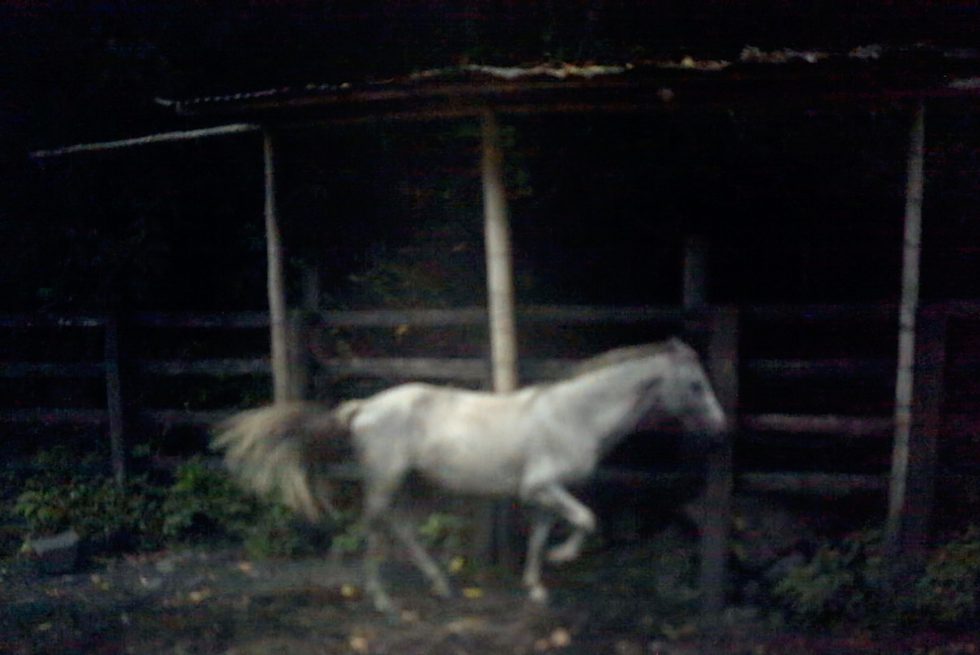The Second Penance
From the Series: Limbo
From the Series: Limbo

I confess that I watched Limbo (2019) while reading the new English-language translation of Michel Foucault’s (2021) Confessions of the Flesh, the fourth volume of his The History of Sexuality. I suppose every viewing is populated by other images, a hodgepodge of thoughts and pictures that enter a field of vision around the same time, but this felt different. As I listened I wondered if I was over-imbuing the words of Javier Alexander Jojoa (Alex), the former Fuerzas Armadas Revolucionarias de Colombia (FARC) guerrilla whose story is at the center of Alexander Fattal’s film, with the character of confession and redemption found in Foucault’s writings. Or were these terms even available to Alex, whose complicated status as hostage and combatant made him both and neither victim and perpetrator? Finally, I asked myself if I was mistaking the truck-trailer-turned-camera-obscura where the film takes place for a confessional.
We enter through a pinhole, passing through a polished lens fitted to an opening on the side of a truck trailer, an incision and its glass repair. Inside, the lens projects an inverted and reversed image over Alex as he speaks: the Colombian countryside turned upside down as it passes over him. We don’t see Alex enter and we never see him leave; he is in this box from start to finish, but he is not alone. The opening title card tells us, me encerré con Alex en el furgón de un camión convertido en camera oscura (I locked myself with Alex in the cargo bed of a truck turned into a camera obscura). But which Alex has locked himself in the truck, the filmmaker or the former paramilitary?—or is this a declaration that the two Alexs share?—and why locked?—what is being kept in or out?
From the beginning, there’s a strange logic of doubling and inversion at work in Limbo. By entering the film through a projection we come to terms with its inversion and reversal, yet at times the projection is inexplicably reversed to correct the image, the filmmaker returning the image to normalcy by filming it upside down. Why? It would be easy to mistake this as a lack of faith in the camera obscura, perhaps the filmmaker’s way of addressing a worry that the audience will only tolerate so much topsy-turvy-ness. But I think there’s more to this—it’s Alex’s story that battles the inversion, his story tries to remedy and correct the image of his past, a story that bends and warps and elongates its words alongside the projection. Alex is attempting to restore the image to the world even if it means standing on his head to do it—I mean, after all, the story, like the image on the screen, is a projection; it is a double of what passes outside the truck onto Alex, blanketing the image of Alex, an image caught in another kind of limbo that fills up the space of the van and enfolds its occupant. Sometimes light overtakes the image, exposing the texture of corrugated steel plates on the walls and floor, reminding us that the projection and the container are separate. At other times the light is kaleidoscopic and freed from the box: the orb of the lens gyrates and dances, haloed in diamond dust caught on rays of sunshine, or night passes; deep blue light seeps in as Alex speaks his life.
So much of this film is a landscape set in motion. Everything we see seems to move along a horizontal track. When the truck passes jungles enveloped in mist, or mountains, or fields, they are not images with depth; they are flattened. We can only guess whether they move forward or backward in space. Even the credit sequence moves horizontally. There is something about the horizon of moving images that assumes forward motion, but in the inversion of the camera obscura we witness landscapes rewinding, and along with them the details of Alex’s life return, the action of things lost and not quite regained. The landscape is in fact another limbo, an anchorless intermediary space respooling a life after war and exodus.
In the chapter of Foucault’s (2021, 64) Confessions of the Flesh entitled “The Second Penance,” he considers the way the Church conceived of a possible second mode of repentance-penance for the already baptized, a mode by which the saved-but-fallen might confess offenses and simultaneously break from a past life of confessed sins. This break is not a repetition of the first supplication, not reconciliation with God, but a metanoia, a changed life, a starting point, of birth from death. Foucault shows how the speech associated with this repentance over time begins to slip into the genre of truth-telling. Alex, baptized in the images that wash over him, returns a different image in speech to the countryside from which he escapes to and from—he is caught in the limbo of this second penance, of speech still tethered to a past. We peer into the box where Alex has not yet passed from death to life (Foucault 2021, 61).
Foucault, Michel. 2021. Confessions of the Flesh: The History of Sexuality, Volume 4. Translated by Robert Hurley. New York: Pantheon Books.